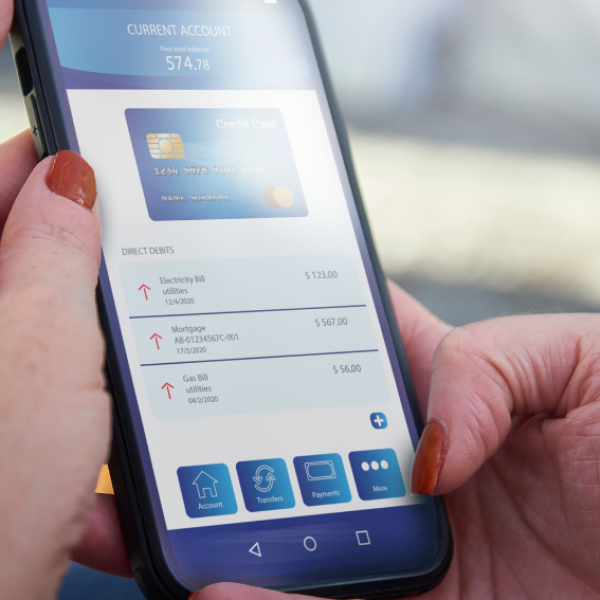The travel industry presents unique challenges for payment processing due to its high-risk classification, international transactions, and large-ticket sales. To remain competitive and ensure smooth operations, travel businesses need reliable merchant accounts tailored to their needs. From tour operators and travel agencies to airlines and cruise operators, the right merchant account can improve customer satisfaction, enhance cash flow, and mitigate risks.
This article explores the best merchant accounts for travel businesses, their features, and factors to consider when choosing the ideal provider.
In This Article
ToggleWhy Travel Merchant Accounts Are Considered High-Risk

The travel industry faces unique challenges that make it a high-risk category for payment processors. This designation affects travel agencies, tour operators, airlines, and other businesses in the sector. Understanding these challenges is key to selecting a payment processor that can effectively mitigate risk while ensuring smooth operations. Below, we elaborate on the primary factors contributing to the high-risk status of travel merchant accounts.
1. High Chargeback Rates
Chargebacks are a common challenge in the travel industry. A chargeback occurs when a customer disputes a transaction with their credit card issuer, resulting in the reversal of the payment. In travel, the likelihood of chargebacks is elevated due to several industry-specific factors:
- Future-Dated Transactions: Many travel bookings, such as flights, cruises, and tours, are made months in advance. If the customer experiences dissatisfaction, such as a service not meeting expectations or an unforeseen cancellation, they may dispute the transaction.
- Cancellation Policies: While many travel businesses have cancellation policies in place, disputes often arise when customers misunderstand or disagree with the terms. For instance, non-refundable bookings can lead to chargebacks when customers attempt to recover their payments after canceling.
- Customer Expectations: Travelers often have high expectations for their experiences. If these expectations are not met—due to delays, poor service, or unanticipated changes—customers may demand refunds or initiate chargebacks.
- Impact on Processors: Chargebacks increase financial risk for payment processors, as they are liable for reimbursing customers when a dispute is resolved in their favor. Frequent chargebacks also lead to additional scrutiny and potential penalties for the merchant.
Travel businesses routinely handle transactions with high dollar values. Examples include:
- Luxury Travel: High-end vacation packages or private tours often exceed thousands of dollars.
- Corporate Travel: Businesses booking flights, accommodations, and transportation for employees incur significant expenses.
- Group Bookings: Family vacations, weddings, or group tours amplify transaction amounts.
Why This is Risky:
Large transaction values pose a greater financial risk for processors in cases of disputes, fraud, or cancellations. Processing high-value payments requires additional security measures and monitoring, which increases operational complexity.
Customer Perspective:
Customers paying large amounts for travel services are more likely to dispute a transaction if something goes wrong, adding to the processor’s liability.
2. Regulatory Complexities
Travel businesses often operate across multiple regions or countries, which introduces significant regulatory challenges:
- Diverse Legal Frameworks: Different countries have varying laws governing payment processing, taxation, and consumer protection. Ensuring compliance with these regulations requires additional resources and expertise.
- Currency Conversion: Handling multiple currencies introduces risks such as fluctuating exchange rates and conversion fees. Processors must be equipped to manage these transactions without causing delays or inaccuracies.
- Tax Compliance: Cross-border transactions often involve complex tax rules, including VAT, GST, and other region-specific levies. Mismanagement of taxes can lead to disputes or legal penalties.
Processor Perspective:
Payment processors must invest in robust infrastructure and expertise to ensure compliance with international regulations, increasing their operational costs and risk exposure.
3. Industry Volatility
The travel industry is particularly susceptible to external factors that can impact business stability and payment processing:
Economic Shifts
Economic downturns reduce consumer spending on discretionary activities like travel. This volatility makes it difficult for processors to predict transaction volumes or assess long-term risk.
Pandemics and Health Crises
Events like the COVID-19 pandemic have shown how quickly the travel industry can come to a halt. Cancellations, refunds, and chargebacks surged during this period, placing immense strain on payment processors.
Geopolitical Events
Political instability, conflicts, or natural disasters can disrupt travel plans and lead to widespread cancellations.
Seasonal Variability
Many travel businesses experience seasonal fluctuations, with high volumes during peak travel seasons and reduced activity during off-peak periods. This inconsistency complicates risk assessments.
Impact on Businesses
Volatility in transaction volume and revenue can make it challenging for travel businesses to meet their financial obligations, including fees owed to processors.
Impact on Processors
Processors face increased financial exposure when servicing businesses in volatile industries, which is why many impose stricter requirements or higher fees for travel merchant accounts.
How Payment Processors Address These Risks
To accommodate travel businesses while mitigating risks, high-risk payment processors employ several strategies:
1. Fraud Prevention Tools:
Advanced systems monitor transactions for unusual activity, such as sudden spikes in transaction volume or transactions from high-risk regions. These tools help prevent fraudulent transactions before they occur.
2. Chargeback Mitigation Services:
Processors offer solutions such as chargeback alerts and automated response systems to help merchants manage disputes effectively. These services reduce financial losses and protect the merchant’s reputation.
3. Customized Fee Structures:
High-risk processors often implement tiered or custom pricing models that reflect the elevated risk of working with travel businesses. While fees may be higher, they account for the additional resources required to manage risk.
4. Flexible Payment Options:
Offering multi-currency support, alternative payment methods (e.g., digital wallets), and local payment options improves customer satisfaction and reduces disputes.
5. Dedicated Support Teams:
High-risk processors provide specialized customer support teams to assist travel businesses in navigating compliance, fraud prevention, and chargeback management.
Key Features to Look for in Travel Merchant Accounts

Selecting the right merchant account for your travel business is crucial for ensuring seamless payment processing, customer satisfaction, and business growth. Below, we elaborate on the essential features to prioritize when evaluating merchant account providers.
1. Multi-Currency Support
Travel businesses often cater to international customers who prefer paying in their local currency. A merchant account with multi-currency support simplifies transactions and enhances customer experience.
Benefits for Businesses:
– Eliminates the need for manual currency conversion, reducing errors and time spent on reconciliation.
– Attracts global customers by avoiding additional conversion fees or delays.
Benefits for Customers:
– Provides transparency in pricing by displaying costs in familiar currencies.
– Avoids hidden fees associated with currency conversion, improving trust and satisfaction.
Why It Matters:
Multi-currency support is essential for businesses with international clients, such as travel agencies, airlines, and tour operators, enabling smoother financial operations.
2. Chargeback Mitigation Tools
Chargebacks are a persistent challenge for travel businesses. Tools designed to manage and reduce chargebacks are critical for protecting your revenue and reputation.
Features to Look For:
- Chargeback Alerts: Early notification of disputes allows businesses to resolve issues before they escalate.
- Automated Responses: Streamlined systems for submitting evidence reduce manual work and response time.
- Detailed Reporting: Insight into chargeback trends helps identify recurring issues and adjust policies.
Why It Matters:
Proactive chargeback management minimizes financial losses and protects merchant accounts from being flagged as high-risk due to excessive disputes.
3. Competitive Rates
Transparent and competitive pricing is vital for maintaining profitability, particularly for travel businesses processing high-ticket transactions or operating on thin margins.
What to Avoid:
– Hidden fees, such as monthly maintenance charges, setup fees, or early termination penalties.
– Processors with unclear or complex pricing structures.
What to Look For:
– Transparent fee schedules, including transaction fees, chargeback fees, and any additional costs.
– Volume-based discounts for businesses with high transaction volumes.
Why It Matters:
Competitive rates ensure cost-efficiency, allowing travel businesses to allocate resources toward growth and customer satisfaction.
4. Integration with Booking Platforms
Efficient integration with booking platforms and online systems is essential for travel businesses that rely heavily on digital transactions.
Seamless Integration:
– Ensures synchronization between your booking software and payment processing system.
– Reduces manual data entry, preventing errors and improving efficiency.
Automation Features:
– Streamlines the payment process, from invoicing to reconciliation.
– Enables automated payment reminders and follow-ups for outstanding balances.
Why It Matters:
Integration with booking platforms enhances operational efficiency and delivers a smoother experience for customers booking services online.
5. Fraud Prevention
Fraudulent transactions pose significant risks to travel businesses, including financial losses and reputational damage. Advanced fraud prevention systems are indispensable.
Features to Look For:
– Real-time transaction monitoring to flag suspicious activity.
– Address Verification System (AVS) and Card Verification Value (CVV) checks for added security.
– Machine learning tools that adapt to new fraud patterns.
Why It Matters:
Fraud prevention tools protect your business from unauthorized transactions and ensure customer trust by safeguarding sensitive payment data.
6. Scalable Solutions
As your travel business grows, your payment processing needs will evolve. A scalable merchant account provider can adapt to these changes without disrupting operations.
Scalability Features:
– Support for increased transaction volumes and higher ticket values.
– Flexible pricing models to accommodate growing businesses.
– The ability to add new payment methods, such as digital wallets or buy-now-pay-later (BNPL) options.
Why It Matters:
Choosing a processor with scalable solutions ensures your payment system evolves alongside your business, supporting long-term growth.
7. Responsive Customer Support
Responsive and reliable customer support is essential for resolving technical issues or transaction disputes promptly.
Key Considerations:
– 24/7 availability to address issues during peak travel seasons or outside regular business hours.
– Multiple support channels, including phone, email, and live chat.
What to Look For:
– A dedicated support team familiar with the travel industry’s unique challenges.
– Fast response times to minimize disruptions and downtime.
Why It Matters:
Exceptional customer support ensures smooth operations and prevents minor issues from escalating into major disruptions.
Top Merchant Accounts for Travel Businesses
Here’s an expanded look at some of the best merchant account providers for travel businesses:
1. Leaders Merchant Services
Leaders Merchant Services offers tailored solutions for high-risk businesses, including travel agencies and tour operators. Its affordable pricing and fast approvals make it a favorite among small to medium-sized travel businesses.
Key Features:
– Customized plans for high-risk industries.
– Minimal hidden fees with competitive transaction rates.
– Quick onboarding process for new accounts.
Best For:
Small to medium-sized travel agencies and operators seeking cost-effective solutions.
Why Choose Leaders Merchant Services?
Their expertise in high-risk industries ensures that even new travel businesses can access reliable payment processing without exorbitant fees.
2. Payroc
Payroc is known for its robust fraud prevention tools and scalability, making it ideal for large travel businesses managing complex operations.
Key Features:
– Advanced fraud detection systems for high-ticket transactions.
– Support for multi-currency and multi-location operations.
– Customized pricing based on transaction volumes.
Best For:
Large travel agencies, cruise operators, and airlines handling international and high-value transactions.
Why Choose Payroc?
Payroc’s focus on security and scalability makes it a trusted partner for travel businesses with extensive operations and global customer bases.
3. PaymentCloud
PaymentCloud specializes in high-risk industries and offers tailored solutions for niche travel sectors, such as luxury tours and adventure travel.
Key Features:
– Easy integration with booking platforms and existing systems.
– Proactive chargeback mitigation tools to reduce disputes.
– No setup fees, keeping initial costs low.
Best For:
Businesses in niche travel markets needing customized payment processing solutions.
Why Choose PaymentCloud?
Their hands-on approach and understanding of high-risk industries ensure reliable service and fewer payment disruptions.
4. Square
Square’s straightforward pricing and ease of use make it a top choice for small travel businesses and individual operators.
Key Features:
– Flat-rate pricing with no long-term contracts or hidden fees.
– User-friendly POS systems and mobile payment solutions.
– Flexible, pay-as-you-go pricing model.
Best For:
Small travel agencies, local tour guides, and startups with low transaction volumes.
Why Choose Square?
Square’s simplicity and affordability make it a great entry-level solution for small businesses testing the waters of payment processing.
5. Sekure Payment Experts
Sekure specializes in remote and online transactions, making it a preferred provider for online travel agencies and mail-order travel services (MOTO).
Key Features:
– Optimized for remote transactions, such as online bookings and MOTO payments.
– Competitive rates for international transactions.
– Comprehensive reporting tools to analyze payment trends.
Best For:
Online travel agencies and remote booking platforms.
Why Choose Sekure Payment Experts?
Their tailored solutions for online transactions ensure smooth and secure payment processing for digital-focused travel businesses.
6. Chase Payment Solutions
Chase Payment Solutions provides fast access to funds and advanced analytics, making it an excellent choice for established travel businesses.
Key Features:
– Same-day deposits for Chase account holders.
– Advanced reporting and financial insights.
– Multi-currency support for global transactions.
Best For:
Established businesses needing consistent cash flow and in-depth analytics.
Why Choose Chase Payment Solutions?
Their ability to combine fast payouts with detailed analytics gives travel businesses the tools they need to optimize operations and cash flow management.
How to Choose the Right Merchant Account for Your Travel Business

1. Assess Your Business Needs
- Small businesses may prioritize affordability and simplicity, while larger operations may need advanced tools and scalability.
2. Compare Fee Structures
- Look for providers offering competitive rates and transparent pricing. Avoid contracts with hidden fees or unclear terms.
3. Check Integration Capabilities
- Ensure the provider integrates seamlessly with your booking software, POS system, and e-commerce platforms.
4. Evaluate Customer Support
- Choose a processor with responsive support to handle industry-specific challenges like chargebacks and fraud prevention.
5. Prioritize Security
- Opt for providers with advanced fraud prevention tools and chargeback management systems.
Conclusion
The travel industry’s unique risks and payment challenges make choosing the right merchant account provider critical. Providers like Leaders Merchant Services, Payroc, PaymentCloud, Square, Sekure Payment Experts, and Chase Payment Solutions offer tailored solutions to meet the needs of various travel businesses.
By evaluating your business’s specific requirements and comparing features, you can select a merchant account that enhances operational efficiency, reduces risks, and improves customer satisfaction. With the right partner, your travel business can thrive in a competitive and dynamic industry.
Frequently Asked Questions
What features should I prioritize in a travel merchant account?
Look for multi-currency support, chargeback mitigation tools, competitive rates, fraud prevention, and integration with booking platforms to meet travel industry needs.
Why are travel merchant accounts considered high-risk?
High chargeback rates, large transaction values, regulatory complexities, and industry volatility make travel businesses high-risk for payment processors.
Which merchant account providers are best for travel businesses?
Top providers include Leaders Merchant Services for affordability, Payroc for scalability, PaymentCloud for tailored solutions, and Chase Payment Solutions for fast payouts and advanced analytics.










